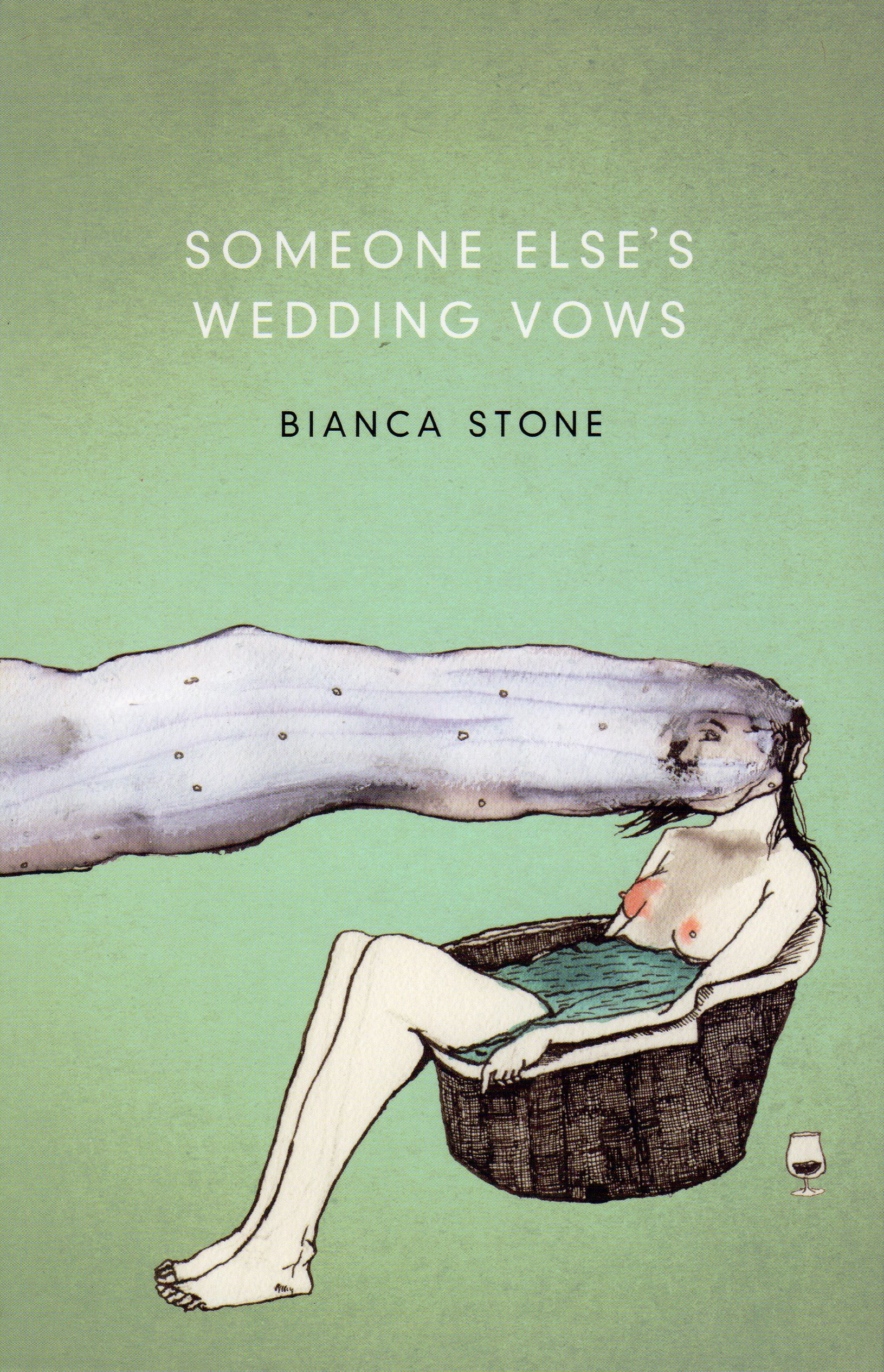Someone Else’s Wedding Vows
The loaded title of Bianca Stone’s debut collection, Someone Else’s Wedding Vows, carries the weight of the marriage-industrial complex on its shoulders. The modern wedding is a complex maze of consumerism, family tradition, and DIY design. But this book isn’t about weddings or bridesmaids. It’s about lovers discovering the space of a long-term relationship, and the poems vibrate when they touch on the tension between self-love and love for another self.
In “Driving Our New Car,” the narrator explores the act of co-ownership when she and her partner inherit a family vehicle (“the car was always / an extension of her: parent vessel, the / sticky seatbelts forever released”). It signifies a coming-of-age milestone and shares a refreshing take on the innocence felt at the reality of the transaction.
Your father had the wipers and brake pads replaced
before he set us into it,
two shy giants locking into their ship.
We drove it to the city, filled with vanity and fear, your hand
on my leg.
The reoccurring image of ships and capsules—from the escape pod in “You Were Lost in the Delta Quadrant” to the dark pods in “Monsieur”—reinforces a tone set by “A Bewilderment” at the beginning of the first section, where the speaker tells us:
I have lost all luscious dreams
beyond all kingdoms of thought.
But then I feel happy thinking of you
the way we invite our love to the table
to eat what’s left.
The speaker makes it clear this partnership is a worthwhile sacrifice. The contentment is cautious, and I cheered to discover lines that contemplated the “luscious dreams” (“I want to go out / and ride the back of a parable … look / for something that thrilled me back in the day”) and lines that describe love as so meager “I have to hold it in my hands / like a white moth.” The line describing the moth manages an image that is both delicate and confident. We sense the tenderness it takes to love, and all the patience it requires to keep it safe.
Is it possible to say something original about the worn-out theme of love and commitment? Stone deftly articulates the act of modern partnership in a post-feminist landscape where a vow does not equal ownership. Why do we choose a partner? What do they provide? What are we required to give of ourselves? In “You Were Lost in the Delta Quadrant,” Stone sets the reader adrift in a debate between two lovers, which could also be a conversation between a mother and an unborn child, or two personalities in the same body. The room left for interpretation in a poem that spans three pages is a testament to Stone’s talent.
You were a governess and I was an energy field.
You drank vegetable bullion, suffering in solitude.
I wanted to bloom in a field of toxic dust
And you talked me out of it.
. . .
I told them to take you away at once
and then shook without you in my presence.
I wanted to live with you on an uninhabited planet
and build you a house.
You wanted to see Bloomington, Indiana again.
The poems in Someone Else’s Wedding Vows are vibrant with a voice that sees the world from every angle.





